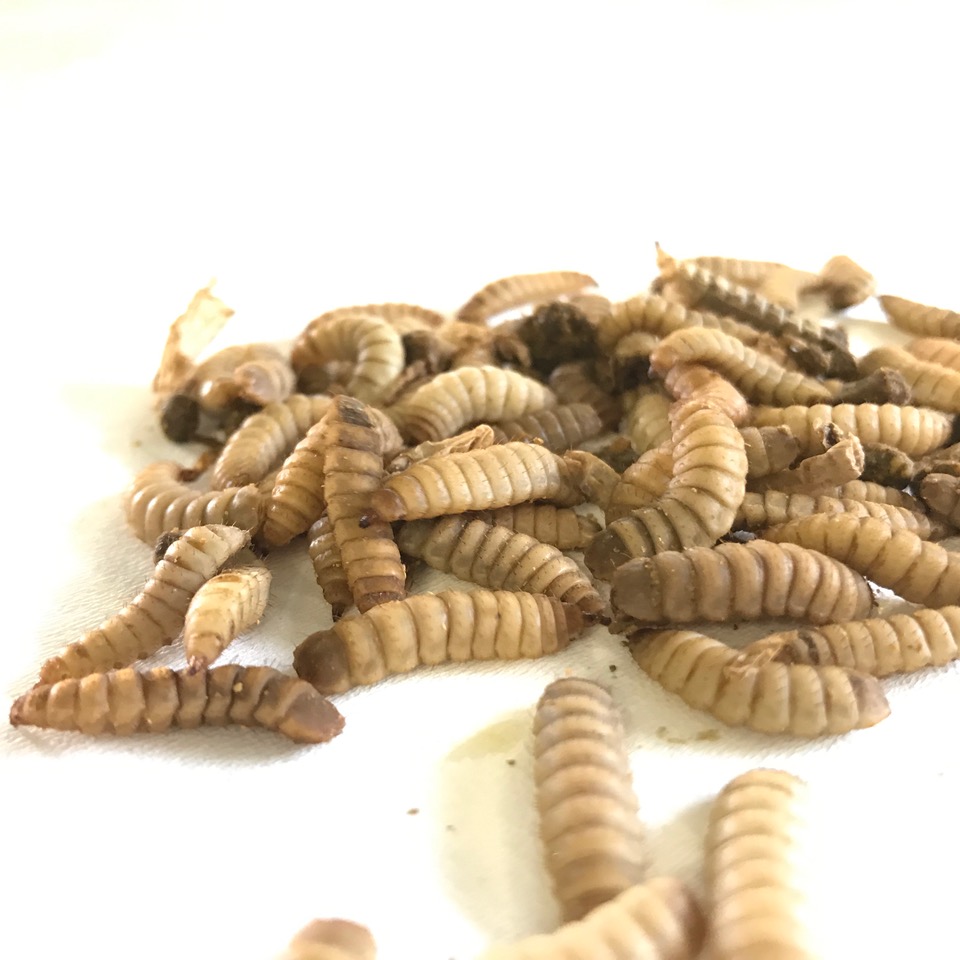
Insect breeding is a fast-growing industry that requires a vibrant support community and tailored-to-need genetics research related to everything from genetic diversity and population structure, phenotyping, breeding objectives, to estimation of breeding values in insects. The aim of this workshop is to bring together scientists working on various insect species and aspects of insect breeding, to present state-of-the-art research, spur debate across species and fields, and to train new generation of insect breeders.
The workshop is organized in tight collaboration with Insect-IMP COST Action that strives to connect edible and non-edible insects, academia and industry, as well as insect and livestock breeding to transfer knowledge to support insect genetic improvement to enhance food security and sustainability while reducing environmental impact.
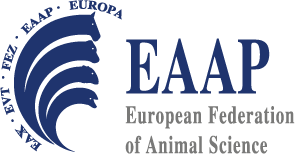


Insect-IMP COST Action
Genetic diversity, population structure and inbreeding management
Interplay of genetics, environment and community (and the role in genetic improvement)
Mating behavior and mating control (in farmed insects)
Design of breeding objectives (for farmed insects)
Phenotyping systems (for farmed insects)
Estimation of breeding values
Plenary session
Ancient DNA, museomics and insect domestication
Aquaculture Breeding development and what we can learn for insect breeding
Session: Genetic diversity, population structure and inbreeding management
Population and Functional Genomics of Black Soldier Fly Mass Rearing
Session: Design of breeding objectives (for farmed insects)
Breeding objective development for different environments in poultry
Session: Genetic diversity, population structure and inbreeding management
Phenotyping through automated image analysis
Crash Course Quantitative genetics
In the training school, we will cover the basics of the key topics in quantitative genetics, such as sources of variation in nature, the use of mixed models and their genetic components, heritability and repeatability, breeding values, and touch upon breeding objectives. The training school is aiming keep the audience engaged through some interactive elements.
Population simulations Training
This 4-hour introduction course to the AlphaSimR package (https://cran.r-project.org/web/packages/AlphaSimR/index.html) will guide participants through the fundamentals of simulating breeding programs. Attendees will learn how to set up and run breeding simulations. Specifically, this introduction course will include simulating DNA, setting trait genetic architecture, obtaining genetic values and phenotypic values, working with multiple population objects, selecting individuals, modelling complex breeding programs, and evaluating selection strategies. The course will cover key functions of AlphaSimR, practical examples, and a flavor of real-world breeding simulations. By the end of the session, participants will gain hands-on experience in modelling and optimizing breeding programs using the AlphaSimR package. After this course, the participants will be able to start their bespoke simulations.
Dissemination
Poster sessions will be organized both on Wednesday 29th January and Thursday 30th January 2024.
LAVES Institute for Apiculture Celle
FIBL Research Institute of Organic Agriculture
Ss. Cyril and Methodius University
Wageningen University & Research
INAGRO
Middle East Technical University
Agricultural Institute of Slovenia
University of Aveiro
University of Turin
Aarhus University
University of Thessaly
University of Thessalytitute for Apiculture Celle
Agricultural University of Athens
Agricultural University of Athens
Agricultural University of Athens
Agricultural University of Athens
EAAP
EAAP
You can easily find hotels and accommodations in the heart of Athens, as well as near the Agricultural University of Athens campus (located less than 2 kilometers from the historical center) where the workshop will be held. Enjoy convenient options for combining both business and leisure days in this vibrant city.
Some examples:
To provide the best experiences, we use technologies such as cookies to store and/or access information on the device. Consent to these technologies will allow us to process data such as browsing behavior or unique IDs on this site. Not consenting or withdrawing consent may negatively affect some features and functions.
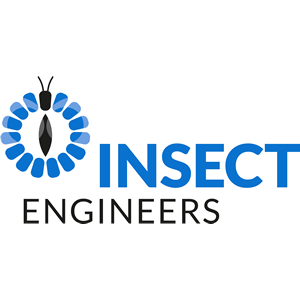
Insect Engineers has the ambition to make BSF farming as commercially attractive as possible. We do this by not only supplying turnkey systems, but also by sharing knowledge through our Insect School.
We have developed and delivered an unique alternative to crates. ZOEM racks are a patented solution for vertical BSF farming. They offer flexibility with efficiency of scale whilst addressing the ecological aspects of insect farming.
At our Insect School we not only provide education and knowledge share, but also carry out research into all aspects of the BSF life cycle.

Flybox® develops advanced insect farming technologies for industrial and research applications. From large-scale sites processing 1–30 tonnes of feedstock daily to lab-grade climate chambers and automated feed systems, Flybox® enables universities, R&D teams, and insect breeders to create optimal environments for entomology innovation and sustainable insect waste management.

Senior scientist at the Research Institute of Organic Agriculture (FiBL)
He has a background in evolutionary ecology and presently focusses on investigating the population genetic structure and phylogeography of insects farmed for food and feed. His research aims at understanding demographic patterns and genetic consequences of domestication in this novel livestock, and exploring genotype-by-environment interactions for various traits across different wild and captive origins as well as diverse production contexts to support selective breeding. He is Secretary of the Study Commission Insects of the European Federation of Animal Science and leads one of the working groups of the COST Action Insect-IMP.
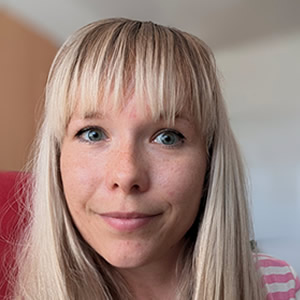
Research Associate at the Agricultural Institute of Slovenia
Her background is quantitative genetics with her MSc focusing on human genetics and her PhD focusing on implementing genomic selection in small dairy populations. Her research focuses on designing breeding programmes and developing tools to improve population management, with special interest in honeybees and large livestock. Additional research interests include managing populations’ genetic diversity and inferring demographic histories with the aim to support systematic breeding. She is the vice-president of the EAAP Young Club and the vice-chair of the COST Action Insect-IMP.
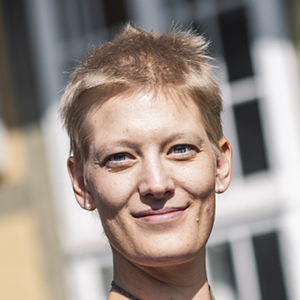
Heads the LAVES Institute for Apiculture in Celle, Germany.
An animal breeder by heart and a veterinarian and geneticist by training, Dr. Petersen grew up on a sheep and beef farm in Northern Germany and studied veterinary medicine at the Freie Universität Berlin with the goal of becoming a livestock veterinarian. Looking for experience in pasture-based production, she moved to New Zealand in 2013, where she instantly became involved in working with large-scale commercial beekeeping operations. Dr. Petersen pursued a PhD in Animal Breeding and Genetics at the University of Otago in Dunedin, New Zealand, in cooperation with Ag-Tech leaders AbacusBio Ltd on the topic of “The role of molecular genetic variation and population structure in the genetic improvement of the honeybee, Apis mellifera”. After working with commercial beekeeping operations across the globe for 10 years on topics of honeybee genetic improvement, business formation and systems improvement, she returned to Germany to take on the role of Director of the State Institute for Apiculture in Lower Saxony.
Georgia is also the National Coordinator for Farm Animal Genetic Resources, and the Cyprus representative in the Food and Agriculture Organisation (FAO), the European Federation of Animal Science (EAAP) and the European Regional Focal Point for Animal Genetic Resources (ERFP). She also currently serves as an elected member of the ERFP Steering Committee (2023-2027), an EAAP Auditor (2022-2025), and was elected President of the EAAP Sheep and Goat Commission (2023-2026. In the past, she has served as a member of the EAAP Research Council (2015-2019), representing Cyprus, Tunisia, Lebanon and Israel, and as a member of the EAAP Ways and Means Committee (2016-2019).
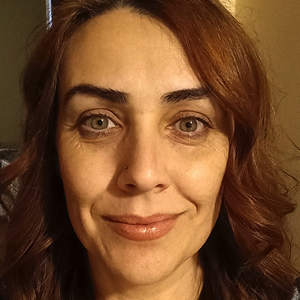
Olga Ameixa Assistant Researcher at the Centre for Environmental and Marine Studies (CESAM) and the Department of Biology at the University of Aveiro
Her current research focusses on applying nature-based solutions to address pressing environmental and societal problems, such as biological control and, more recently, the use of insects to tackle the shortage of nutritious, environmentally friendly, and cost-effective feeds for aquaculture. Throughout her activities, she gained experience in rearing insects in tri-trophic systems and on artificial diets. All this contributed to her insight into insect mass rearing. Her broader research interests include insect biodiversity, ecology, and the ecosystem services they provide. In addition to her research, she is actively involved in academic teaching at the University of Aveiro, where she also supervises PhD, MSc, and undergraduate students. She is a member of the Management Committee of the COST Action Insect-IMP, where she leads the working group focused on insect mating behaviours.
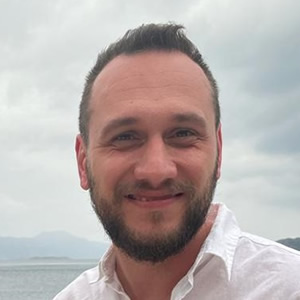
Mert Kükrer focuses on the evolutionary ecology and spatial and adaptive genetics of honey bee subspecies. He is interested in understanding how honey bees interact with their environment and how this affects their health and well-being. He is particularly interested in the impacts of human-driven environmental change on bee populations and the consequences for genetic diversity and winter losses. He is also interested in how we can use honey bees to help conserve other wildlife species. His research combines ecology and evolution to understand how species adapt to their changing environment at the genomic level and how this affects their diversity and distribution. The species he focuses on are either under threat, in conflict with humans, or intensively managed due to their economic importance. He use a combination of field and molecular methods to answer questions about the ecology and evolution of species, spanning multiple levels of organization, from genes to ecosystems.
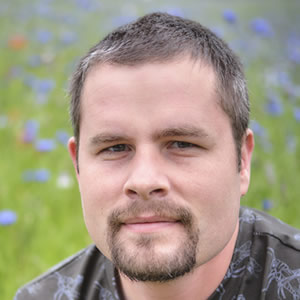
Full time researcher at INAGRO Insect Research Centre (IRC)
David Deruytter is a Master in Biology and has a PhD in ecotoxicology. He is a full-time insect researcher at the Insect Research Centre (IRC) of Inagro with 7 years of expertise with breeding Tenebrio molitor and Hermetia illucens at a pilot scale. He focuses on optimizing the production for insects for food and feed and more specifically: feed, climate and emissions. Besides this he has a love for statistics and standardization of experimental procedures ensuring more comparability between research and institutes. He is currently coordinator of the BugBook and a working group leader in the COST Action Insect-IMP on breeding objectives.
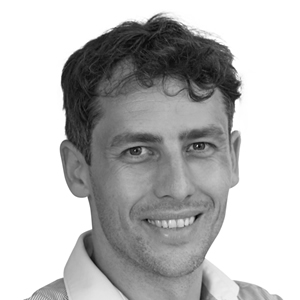
Anton Gligorescu is a seasoned industrial R&D entomologist with almost a decade of experience in Black Soldier Fly (BSF) research, spanning both private industry and academia. As the founder of EntoPrime and an enrolled PhD candidate at Aarhus University, Anton is dedicated to pioneering innovative insect breeding technologies. His PhD research focuses on optimizing BSF breeding and adaptation to low-quality feedstocks, further enhancing their potential for sustainable applications.
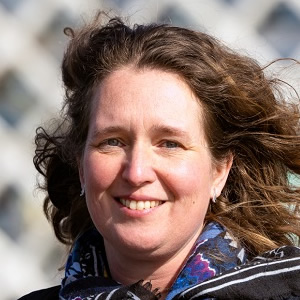
Deputy Head of Department Animal Breeding and Genomics, Wageningen University and Research
Esther is project leader of different projects related to using (new) technologies to phenotype individuals and using this information in animal breeding. Her projects focus on organoids (in vitro technologies), reproduction, sensor technologies to monitor individuals in groups, and designing insect breeding programs. She mainly works with poultry, pigs and insects.
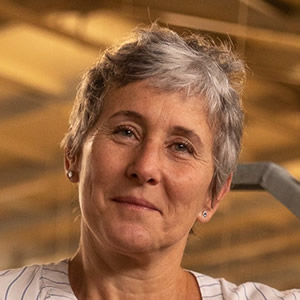
Full Professor at the Department of Agricultural, Forest and Food Sciences of the University of Turin
Laura focuses her research on fish, rabbit and poultry farming and nutrition assessing performances and the impact of alternative ingredients on product quality. Since 2012 her research is focused on the use of insect meals as innovative ingredients in animal nutrition and on the optimisation of insect rearing for the production of high quality raw materials. In particular, her research focuses on the black soldier fly (Hermetia illucens) and on the yellow mealworm (Tenebrio molitor). She is involved in projects related to insects as feed. Laura is president of the Study Commission Insects of the European Federation of Animal Science. She is Section editor for animal: The international journal of animal biosciences, and a member of the editorial board of the Journal of Insects as Food and Feed.
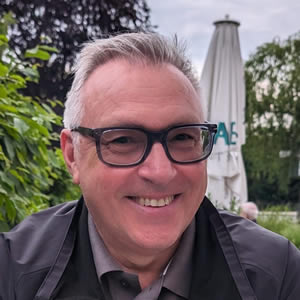
Full professor at the University Ss. Cyril and Methodius in North Macedonia and Senior Researcher and associate professor at the Swedish University of Agricultural Sciences
His expertise lies in the evaluation of quantitative traits in livestock, with a particular focus on using linear and threshold models across various species, including honey bees. Sreten is also dedicated to practical applications of his research, serving as a breeding advisor for the national pig industry and participating in initiatives aimed at sustainable animal genetic resource management.
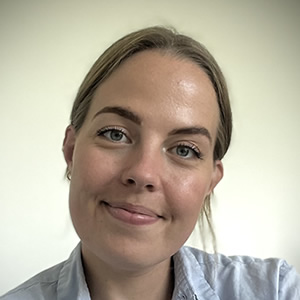
Post-doc at the Center for Quantitative Genetics and Genomics (QGG), Aarhus University
Laura works exclusively on the optimisation of insect production for food and feed using genetic and genomic resources. Her main research expertise is genetic modelling of quantitative traits including genetic parameter and breeding value estimation, developing high-throughput phenotyping approaches tailored for insects, developing and simulating various insect breeding programs, implementing selective breeding at laboratory and production scale, and evaluating genetic progress and trade-offs in the insect populations. Her main focus species are the house fly (Musca domestica) and black soldier fly (Hermetia illucens). She was awarded her PhD in quantitative genetics in January 2024 and is employed as a postdoctoral researcher at the Centre for Quantitative Genetics and Genomics at Aarhus University, where she leads the Centre’s insect team.
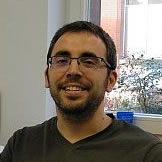
Tenured Scientist at the Institute of Evolutionary Biology, Barcelona (Spain)
Trained in comparative and population genomics, his PhD focused on Drosophila while his post-doctoral research on domestication processes leveraging ancient DNA retrieved from fossil remains. His work revolutionised our understanding of one of the most important turning points in human history, namely the domestication of the horse. His current interests lay at the intersection between insect comparative genomics (Drosophila) and ancient population genomics (livestock). He seeks to understand the mechanisms underlying early domestication stages, leveraging the emerging field of edible insects as study model. Additional interests include the development of computational tools to exploit ancient and modern genomes efficiently.
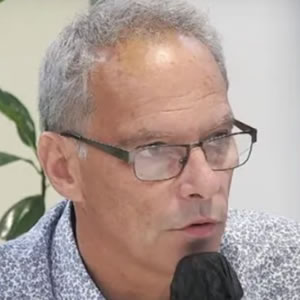
R&D manager in selective breeding programms in aquaculture in SYSAAF
Thirty four years of experience in domestication and selective breeding programs of fish, mollusc and shrimp species. Initially involved in the transfert of optimized within-group mass selection, he introduced DNA-based pedigree assignment to manage inbreeding and to invest in pedigree selection (or BLUP) in French breeding programs. Their design were upgraded to genomic selection for new traits as processing yield, lipid content, disease resistance, GxSite or triploidy interaction in developing genomic tools and new phenotyping technologies. Actually manager of a team of 12 geneticists, he also coordinate the development of selective breeding programs in pearl oyster and in honey bee aside to advices to other insect breeding in SYSAAF. He is Board member of FABRE-TP platform.
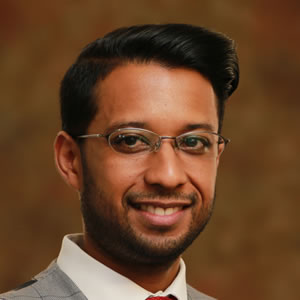
Associate Professor of Genetics at Stellenbosch University, South Africa.
He has a primary disciplinary specialisation in population- and quantitative genetics, and a special research interest in how micro-evolutionary processes influence genome-wide patterns of genetic diversity and how this in turn facilitates phenotypic development and variation. His work has applications in animal production, conservation management, and evolutionary biology. He is South Africa’s leading aquaculture geneticists working on various indigenous marine species of economic importance and has recently taken an interest in the genetics and genomics of insect mass rearing, specifically of the black soldier fly. Furthermore, he is registered with the South African Council for Natural Scientific Professions as a professional scientist; he holds granted membership to the Golden Key International Honour Society; is a member of the International Animal Genetics Society; and currently serves as the President of the South African Genetics Society; as an Executive Member of the International Genetics Federation, on the Scientific Committee of the Southern African Aquaculture Association, and on the Editorial Board of the international scientific journal Royal Society Open Science.
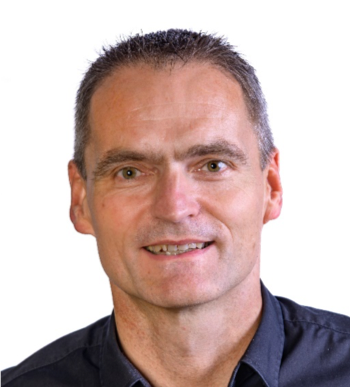
Team lead genetics and genomics at Hendrix Genetics Research, Technology & Services B.V.
His background is in quantitative genetics and genomics with his MSc in Animal Breeding at the Wageningen University in The Netherlands, and his PhD focusing on statistical methodology for QTL mapping in dairy cattle. As a research scientist at Wageningen UR he acquired, communicated, executed and managed various projects with funding from national and international plant breeding companies, science agencies and governments. In 2016, he started to work for Hendrix Genetics, a multispecies animal breeding company, strengthening the research and product development, with a strong focus on genetic evaluations and design of breeding programs.
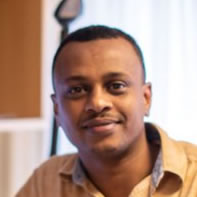
Assistant Professor at the Center for Quantitative Genetics and Genomics (QGG), Aarhus University, with a Ph.D. in Quantitative Genetics and Genomics from Wageningen University and Aarhus University.
His research focuses on developing innovative phenotypes for livestock breeding, using technologies like computer vision and sensors in various species such as Black soldier fly, fish, pigs, and cattle. Grum plays a key role in various insect-for-feed projects, including co-leading the FlyGene project implemented by Aarhus University in Kenya and Uganda, and contributing to the FlyBreed project in collaboration with Enorm, Northern Europe’s largest BSF producer. He is also an active member of international research networks, including EU COST Actions focused on advancing livestock phenomics and sustainable insect breeding practices.
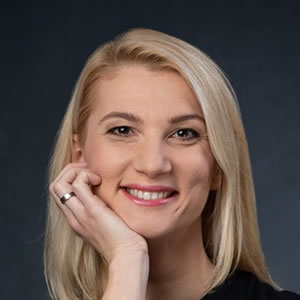
Assistant Professor at Poznan University of Life Sciences.
She is an academic lecturer and scientist specializing in animal breeding and statistical genomics mainly in pigs, but also other species. Her research focuses on the genetic background of variability of reproduction traits in pigs, simulations of breeding objectives, GWAS and (genomic) breeding value estimation. She is involved in two EU Horizon projects: mEATquality (WP1 leader) and Re-Livestock (WP3 scientist), and two COST Actions as a Management Committee member from Poland: EU-LI-PHE and Insect-IMP.
She is Vice-president in the Animal Genetics Commission at EAAP and President of the Permanent Committee of World Congress of Genetics Applied to Livestock Production.
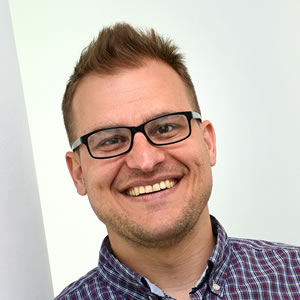
Professor in Selective Breeding at The Roslin Institute of the University of Edinburgh.
I lead the Highlander Lab, where we manage and improve populations using data science, genetics, and breeding. We are interested in: i) methods for genetics and breeding, ii) design and optimisation of breeding programs, and iii) analysis of data to unravel biology and find new ways of improving populations.
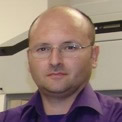
Professor at the University of Thessaly
His research is focused on insect biology and detection, pest management and utilization of insects as food and feed. He is a co-author in >450 scientific papers in peer-reviewed journals, while he serves as a consultant of different international organization, such as the United Nations/FAO, USAID/CNFA etc. He has received several awards from different bodies, such as the Fulbright Foundation, the Organization for Economic Cooperation and Development (OECD), the Institute for International Education (IIE/OLF) etc.
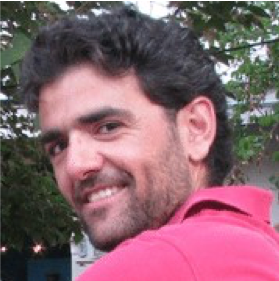
Assistant Professor in the Department of Agriculture of the School of Agricultural Sciences of University of Patras
His main research interests focus on integrated plant protection, post-harvest insect biology and ecology, whereas more recently he has been active on the exploitation of insects as food and feed and particularly on the optimization of mass-rearing of mealworms. Christos has actively participated as researcher in numerous research projects. He has published more than 100 scientific papers in peer-reviewed journals and 4 book chapters, whereas he has participated in many international congresses and conferences. He is member of the editorial board of several international journals, such as Journal of Insects as Food and Feed, Animal, Heliyon, Journal of Insect Science, Insects and Sustainability.
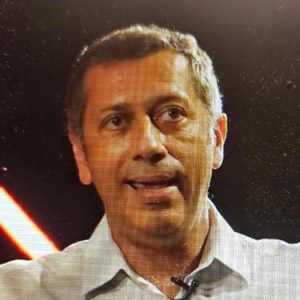
Assistant Professor of Agricultural and Productive Entomology in the Department of Crop Science at the Agricultural University of Athens
He holds a BSc, MSc, and PhD in Entomology from AUA, where his research has focused on productive insects, precision insect control and agricultural pests. He completed a three-year post-doctoral research appointment in the Department of Entomology and Nematology at the University of Florida, USA. During this time, he contributed to key research on citrus pest management and the impact of insecticides on pathogen transmission. At AUA, he teaches courses in Apiculture and Sericulture, Pathology of Productive Insects, General Entomology, and Agricultural Entomology, while also supervising PhD, MSc, and BSc students. His research team is currently involved in 2 Horizon Europe projects, over 15 other international and national projects, focusing on classical and precision apiculture, sericulture, and agricultural entomology. Antonios is widely published and actively contributes to international conferences and journals, enhancing scientific understanding in pest management and entomological biodiversity. He has also received specialized training in cutting-edge techniques like electrical penetration graph (EPG) analysis and participates in multiple collaborative projects across Europe and the United States. He also serves as member of the Council of the International Bee Research Association (IBRA), as well as the Hellenic Entomological Society and the Hellenic Society of Phytiatry.
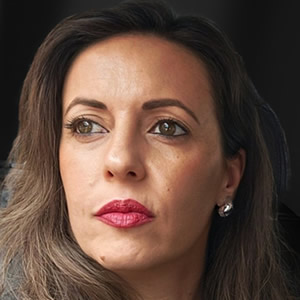
Full Professor at the Department of Nutritional Physiology and Feeding in the Faculty of Animal Sciences of the Agricultural University of Athens
She is teaching Ruminants Nutrition in undergraduate and postgraduate students. She recently receives the Italian Full Professor License from ASN Universities. She received her BSc. in Animal Sciences (2005), her MSc. (2006), and her Ph.D. in Animal Nutrition (2008) from the Agricultural University of Athens. She has conducted post-doctoral research at Reading University (2009) and at the Agricultural University of Athens (2010-2011) with Fellowship from the State Scholarship Foundation of Greece. Dr. Eleni Tsiplakou was the Vice-President of the Nutrition Commission of European Association for Animal Production (EAAP) (2016-2019) while from 2010 to 2016 was Secretariat in the above commission. She was Chairperson in 9 International and 2 National Conferences. She has gained 2 Scholarships from the National Scholarship Foundation of Greece for Post graduate studies and Postdoctoral Research and 3 from the EAAP for papers presentations. She is Associate Editor in the Italian Journal of Animal Science while she was also Section Editor (20/3/2017-05/02/2021) in the same Journal. She has acted as Guest Editor in Foods Journal Special Issue and in Frontiers in Animal Science. Dr. Eleni Tsiplakou is also Editorial Board Member in the Journal of Dairy Research, SciTz Nutrition and Food Science Journals. She has published so far, 130 research papers in peer-review journals, 6 chapters and 154 abstracts in national and international conferences. Her h index is 26 (according to Scopus data base). She has coordinated 5 research projects and participated in 23 research projects, 5 of which are funded by the EU. She has been External Evaluator in 5 International Research Projects [1 for the Slovak Research and Development Agency, 3 for the Croatian Science Foundation (HRZZ) and 1 for the Republic of Serbia (SSF)] and in 15 within the framework of the Fundação para a Ciência e a Tecnologia, I.P. (FCT), the Portuguese public funding agency for R&D [2023 Call for Scientific Research and Technological Development (SR&TD) Projects in all Scientific Domains] in the Scientific Area “Animal and Veterinary Sciences and Agro-Food Biotechnology”. She is member of the Certified Experts Evaluators of the Hellenic Foundation of Research and Innovation (EL.ID.E.K). She has been acted as an External Evaluator of 11 PhD Theses from foreign Universities and she has supervised so far 26 Bachelor, 5 MSc., and 6 Ph.D. thesis. In 2017, she received the Young Scientist Award from the EAAP. She has been included for 3 consecutive years (2021, 2022, 2023) in World’s Top 2% of Scientists of Stanford University ranking (Ioannidis list).
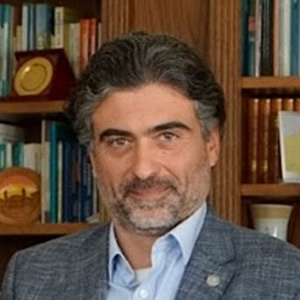
Ph.D., Professor of Biochemistry and Vice-Rector of the Agricultural University of Athens
He is affiliated with the Laboratory of Molecular Biology within the Department of Biotechnology of AUA. His research encompasses cutting-edge molecular biology, biochemical, and biotechnology methodologies and their applications. This includes expertise in genomic, metagenomic, transcriptomic, and metabolomic platforms, as well as proficiency in protein-protein interaction techniques and genetic transformation technologies for plants and microbes. In recent years, Flemetakis’s group has focused on elucidating the genetic, molecular, and biochemical mechanisms that govern the interaction between organisms and their biotic and abiotic environments. They are actively involved in developing environmentally sustainable biotechnological processes and applications. Their work leverages bacteriophages, marine and freshwater microalgae, and other beneficial microorganisms to enhance the resilience and productivity of plants and animals in response to climate change challenges. These research efforts have resulted to the co-authorship of more than 110 research papers.

Secretary-General for both the European Federation of Animal Science (EAAP) and the World Association for Animal Production (WAAP).
Andrea holds degrees in Animal Sciences from the University of Perugia (Italy) and advanced qualifications, including an M.Sc. and Ph.D. in Animal Genetics from the University of Nebraska (USA). He began his career at the Italian Association of Animal Breeders, later becoming National Technical Manager. He also led the International Committee for Animal Recording (ICAR) for 11 years. Andrea has coordinated two EU-funded research projects and contributed to over 20 others. He co-founded four animal science journals and has lectured in over 40 countries. He is also author of numerous research articles and dissemination pieces, in addition to writing book chapters centered on animal science. His work spans animal production, genetics, and sustainability, with a strong focus on global collaboration.
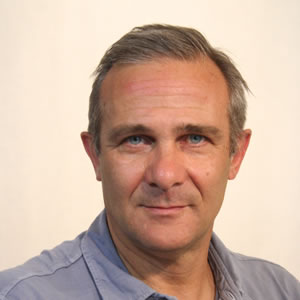
EAAP Senior EU project manager
I have worked for public (National Research Council of Italy, European Commission, Ministry of University and Research) and private (Sapienza Innovazione, IPI) organizations. I have a long experience in managing international projects (7 EU projects, both in FP7 and Horizon 2020 coordinated), as well as in disseminating and exploiting project results. Within EAAP, I am responsible for the EU project Unit, which has been involved in 13 EU projects, mainly in charge of the project communication and dissemination activities.